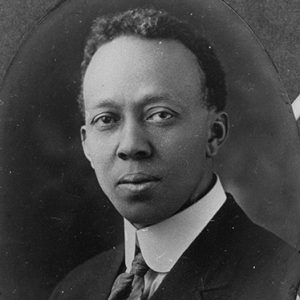calsfoundation@cals.org
Arkansas Negro Democratic Association (ANDA)
The Arkansas Negro Democratic Association (ANDA) was founded in 1928 by Little Rock (Pulaski County) physician John Marshall Robinson, who served as president until 1952, and a number of other prominent black professionals. Between 1928 and 1952, ANDA was the leading voice of black Arkansas Democrats in the state. Although ANDA tackled a number of issues concerned with racial discrimination, its principal focus was on winning the right for black citizens to participate in the activities of the Arkansas Democratic Party, especially its primary elections.
In Arkansas, the payment of a one-dollar poll tax qualified a person to vote, irrespective of race. But exclusion from state Democratic Party primary elections significantly disfranchised black voters since that party dominated state politics. When white Democrats in Little Rock prevented African Americans from voting in the party’s primary elections in 1928, Robinson petitioned the courts for redress. After a temporary restraining order was overturned, Robinson then sued for the right to vote in Robinson v. Holman (1930). The Arkansas Supreme Court upheld the use of all-white primaries, and the U.S. Supreme Court refused to hear the case on appeal.
Although Robinson’s and ANDA’s activism was muted by the Great Depression of the 1930s, it was revived again in the 1940s. A U.S. Supreme Court ruling in the Louisiana case of United States v. Classic (1941) declared that primary elections were subject to federal regulation. However, ANDA members were once more turned away from the polls on election day. It took another U.S. Supreme Court ruling in the Texas case of Smith v. Allwright (1944) to clarify the situation. In that case, the Court explicitly stated that the use of all-white primary elections to disfranchise black voters was unconstitutional.
Black Arkansans voted in the 1944 primary elections. In 1945, white Democrats sought to reverse this by amending party membership rules and initiating a complex double primary system. This provided for city and statewide primaries that excluded African Americans and for federal primaries at which blacks could vote but only at segregated ballot boxes. Arkansas Secretary of State C. G. Hall said that Robinson was not eligible to vote at all because of a conviction for manslaughter in 1911. Robinson believed that he had already been pardoned for the crime, but in exchange for his citizenship rights fully restored, he offered to resign as ANDA president. After the 1944 elections, Governor Homer Adkins pardoned him, apparently unconditionally.
Robinson found his authority increasingly challenged by younger black activists who sought to use the black vote more strategically to extract concessions from white politicians. In 1949, I. S. McClinton founded and became president of the Young Negro Democrats. In 1950, the Little Rock branch of the National Association for the Advancement of Colored People (NAACP) brought an end to the all-white primaries in Arkansas when it supported Little Rock minister J. H. Gatlin’s lawsuit for a place on the Democratic Party primary ballot. The courts ruled in Gatlin’s favor. Later that year, the State Democratic Convention changed party rules to admit African Americans.
When Robinson announced his retirement from politics in 1952, McClinton was elected ANDA president. McClinton and his supporters then changed the name of the organization to the Arkansas Democratic Voters Association (ADVA) to assimilate into the integrated Arkansas Democratic Party. Both ANDA and ADVA were the forerunners of what is today known as the Arkansas Democratic Black Caucus. The common mission of all these organizations has been to give voice to the concerns of black Arkansas Democratic Party voters, members, and elected officials.
For additional information:
Alexander, Henry M. “The Double Primary.” Arkansas Historical Quarterly 3 (Autumn 1944): 217–268.
Hine, Darlene C. Black Victory: The Rise and Fall of the White Primary in Texas. New York: KTO Press, 1979.
Kirk, John A. “Dr. J. M. Robinson, the Arkansas Negro Democratic Association and Black Politics in Little Rock, Arkansas, 1928–1952.” Pulaski County Historical Review 41 (Spring and Summer 1993): 2–16, 39–47.
———. Redefining the Color Line: Black Activism in Little Rock, Arkansas, 1940–1970. Gainesville: University Press of Florida, 2002.
Lewis, Todd E. “Race Relations in Arkansas, 1910–1929.” PhD diss., University of Arkansas, 1995.
Pierson, Dale Lya. “John M. Robinson, M.D., 1879–1970.” Pulaski County Historical Review 41 (Winter 1993): 91–93.
Robinson v. Holman 26 S.W. 2d 66 (Ark. 1930).
Smith, C. Calvin. “The Politics of Evasion: Arkansas’ Reaction to Smith v. Allwright, 1944.” Journal of Negro History 67 (Spring 1982): 40–51.
John A. Kirk
Royal Holloway
University of London

 John M. Robinson
John M. Robinson 



Comments
No comments on this entry yet.